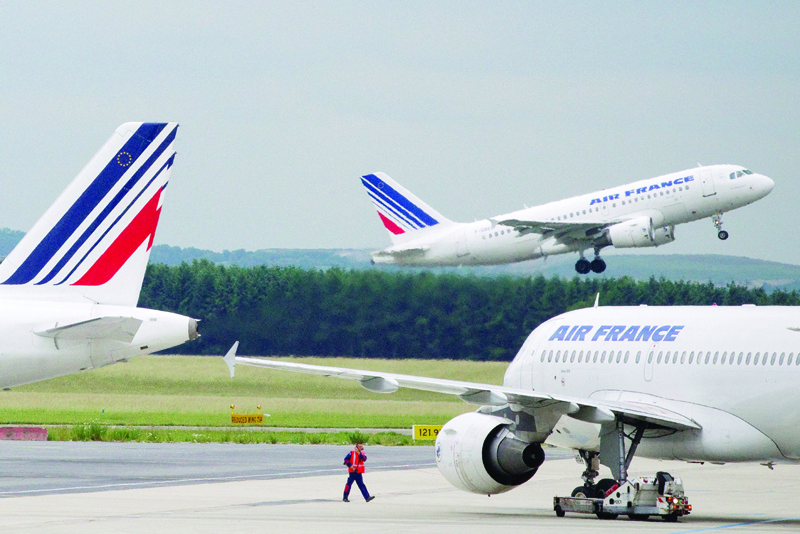 PARIS: This file photo shows Air France planes at Roissy-Charles de Gaulle airport in Roissy-en-France, outside Paris. - AFP
PARIS: This file photo shows Air France planes at Roissy-Charles de Gaulle airport in Roissy-en-France, outside Paris. - AFPPARIS: One year ago 26-year-old Perrine was on the cusp of realizing her childhood dream of becoming a flight attendant. Then the COVID-19 pandemic arrived and Perrine is now on track for a job in insurance instead. At the CFA center near Paris's Bourget airport where Perrine has been training in mock aircraft cabins, the seats for passengers are now empty and there are no attendants. Most of the 8,000-square-metre (86,000-square-foot) facility is silent. In a vast hanger that holds a Falcon business jet and a Super Puma helicopter for technical training, just a couple of dozen students are busy at work benches.
Making the traditional welcome speech at the start of the academic year in this very unusual year "was a bit touch and go", said instructor Pierre-Henri Greze. "Most of the students are concerned, anxious about the future," he added. The number of apprentices at the start of the 2020 academic year was down by half to 300, with the courses for flight attendants at a complete halt as airlines shed cabin crew jobs to match the vastly reduced number of flights they are operating.
The mechanic and technician students are down by a third. Before the COVID-19 pandemic, which saw airlines ground most of their planes as travel came to a near standstill, graduates of the CFA school had no problem finding jobs. Rather, it "had trouble finding candidates" for all the jobs that the aviation industry was looking to fill, said CFA director Veronique Flavigny. In France, the aerospace and aviation industries recruited 8,000 apprentices in 2019, double the number a decade ago as air traffic expanded between 3.0 and 4.0 percent per year. But COVID-19 brought all that to a brutal halt.
Dreams delayed or dashed?
Companies are now shedding jobs, thousands of them. Airbus has plans to let 15,000 staff go, including 5,000 in France. Air France plans to cut 8,500 jobs. Air traffic was down two-thirds globally in 2020, according to the International Air Transport Association, and it does not expect a return to 2019 levels before 2024. CFA director Flavigny hopes to make it through the worst of the pandemic so the school can survive.
"We found solutions for 2021," she said. But beyond that, "all depends on how things recover and the support we receive," she added, noting the school has tapped funding offered by the French government. Flavigny is worried about current and former students, many of whom now face becoming unemployed. Meanwhile, the students themselves fluctuate between depression and determination.
"You can't give up," said Marotea Archer, 21, with a pair of pliers in his hands. "Maybe in a couple of years a company will need workers and hire us." Perrine Chaumet is not as optimistic. "Even if you move heaven and earth, you can't pursue your dream job in a crisis like this," said Chaumet. Last month, "I began to submit job applications for insurance and admin jobs as I see the situation isn't improving and we don't know if that is for several months or several years," she added. Nevertheless, after the crisis passes Chaumet still hopes to take to the skies. "I had the time to see that is what I want to do. It's what makes me want to get up in the morning." - AFP










